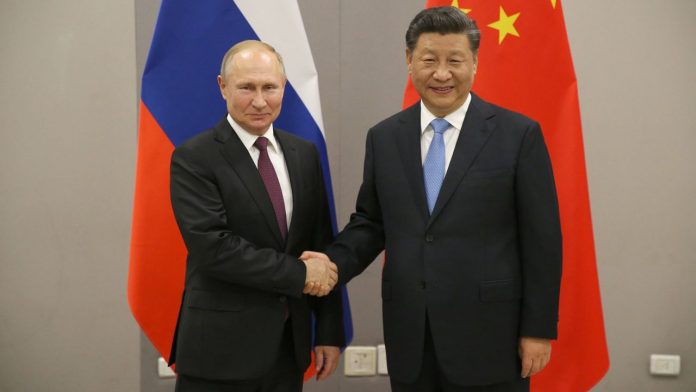Vladimir Putin and Xi Jinping today pledged to continue their efforts to disrupt the world order while criticizing what they portrayed as an increasingly ‘aggressive’ United States.
Meeting in Beijing, the Russian and Chinese leaders also vowed to ‘cherish and nurture’ their so-called ‘no limits’ relationship, a commitment they made just weeks before Putin launched his invasion of Ukraine on February 24, 2022.
This marks Putin’s first trip abroad since his March re-election and the second in just over six months to China, underscoring the importance of Xi’s support for the Kremlin chief. They present their relationship as a bulwark against Western interference, accelerating a shift in the global order toward multipolarity and away from US and Western dominance.
In a clear rebuff to Washington, whose top diplomat visited China last month to urge Beijing to reduce its ties with Moscow, Xi indicated that he and Putin shared common ground on various significant issues, including Ukraine.
However, despite their emphasis on partnership, most analysts and commentators agree that amid his ongoing war, it is Putin who depends more on this relationship than Xi.
China has proven to be an economic lifeline for Russia following unprecedented Western sanctions over Ukraine, and Putin has spoken highly of his Chinese counterpart while expressing admiration for Chinese culture—mentioning that members of his family are even learning Mandarin.
During their meeting, Xi told his ‘old friend’ Putin that China-Russia relations were ‘conducive to peace,’ according to a statement from Beijing’s foreign ministry.
‘China is ready to work with Russia to… uphold fairness and justice in the world,’ Xi added. ‘The China-Russia relationship today is hard-earned, and the two sides need to cherish and nurture it.’
Putin, in turn, told Xi the two countries’ relations were ‘stabilising factors in the international arena’, insisting that ‘relations between Russia and China are not opportunistic and not directed against anyone’.
‘Together, we uphold the principles of justice and a democratic world order that reflects multipolar realities and is based on international law,’ he added.











